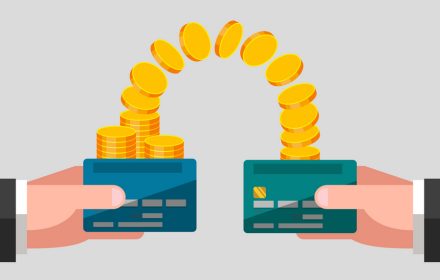In the gambling industry, every second search engine query is related to why a casino may delay payouts. It’s all about money, time, and trust. Just remember that in 2023, the Online Gaming Association recorded over 35,000 inquiries regarding transaction issues. The situation is rarely due to malicious intent: more often, internal platform mechanisms, legal restrictions, or technical factors are at play.
Financial Limits and Regulatory Requirements
Payouts are subject to strict rules. Any platform’s license contains clear instructions on limits: a one-time withdrawal amount may be restricted to $3,000–$5,000, while a large jackpot is spread out over monthly transactions. This is why a casino may delay payouts when these limits are exceeded.
Regulators require every significant operation to be documented to track potential fraud. Verification can take from several hours to several days. For example, in the UK, the UKGC mandates that an operator provide a report for any transaction over $2,500. Therefore, delays are considered part of control measures, not deception.
Data Verification and Documents
Most often, delays occur due to the need to verify identity. The platform uses the KYC (Know Your Customer) procedure. Delays happen when a player uploads a blurry passport photo or forgets to attach a bank statement.
Why can a casino delay payouts in this case? The reason is clear: without documents, the transaction does not meet financial security requirements. The administration must ensure that the winnings belong to a specific player, not a fraudster. On average, verification takes 24–72 hours.
Why a Casino May Delay Payouts: Technical Glitches and Software Errors
Even the most reliable platforms are susceptible to glitches. Server crashes, incorrect payment gateway operations, or delays in the bank’s API can cause a transaction to “hang.”
History shows that in 2021, a major European establishment reported a delay of over 12,000 payouts due to a processing system update. Players had to wait up to 5 days. This explains why a casino may delay payouts, even when everything is correctly done from the user’s end.
Bonus Offers and Wagering Requirements
Promotions and bonuses add complexity. The platform credits additional funds but ties them to a wagering requirement. If a player tries to withdraw money before meeting these rules, the platform rejects the transaction. This is where the feeling of “the casino is not paying out winnings” arises. In reality, the funds remain as bonus funds.
For example, with a ×30 wagering requirement, a $10 deposit must be wagered at least $300. Until this is done, withdrawal is not possible.
Time and Amount Limits
Withdrawal times vary from 24 hours to 7 days depending on the method: e-wallets are processed faster, while bank cards are slower. Limits are specified in the rules. These boundaries explain why a casino may delay payouts when attempting to withdraw a large win immediately.
Role of Customer Support and Administration
Delays are often linked to lack of communication. A player files a complaint but does not check the support team’s response. The administration notes the issue and awaits feedback.
According to the Gambling Commission’s statistics, 28% of cases of “why the casino is not paying out money” are resolved after the user provides additional information. The delay turns out to be a communication gap, not deception.
Why Online Casinos May Delay Payouts: Common Reasons
The list explains key factors affecting fund transfer times and helps address the issue systematically. Each point reveals why a casino may delay payouts and demonstrates the logic of the platform’s internal processes.
To structure the factors, let’s consider one block in the form of a list:
- Document Verification: data discrepancies, blurry copies.
- License Restrictions: limits on amounts and timeframes.
- Bonus Terms: unmet wagering or playthrough requirements.
- Technical Glitches: server or bank gateway errors.
- Financial Control: checking suspicious transactions for fraud.
- Administrative Delays: waiting for player or support response.
Each point directly answers why a casino may delay payouts and shows that the root of the problem lies in specific mechanisms.
Reliability, Security, and Fairness
A licensed platform is regulated by external bodies. The regulator ensures game fairness, protects player rights, and demands transparency. This is why a casino delays transactions for verification.
Reliability is ensured by a combination of factors: license, loyalty program, payment system security. For example, the MGA (Malta) license requires players’ deposits to be stored in separate accounts, minimizing the risk of fraud.
Complaints and How to Expedite the Process
In cases of prolonged delays, a well-crafted complaint can help. The text should include the transaction number, date, and problem description. Specifics expedite processing.
Practice shows that a properly submitted complaint reduces the waiting time by 40%. This is how to expedite fund withdrawals without unnecessary conflicts.
Wins and Jackpots: Special Cases
A large win or jackpot almost always involves additional verification. The establishment must ensure the randomness of numbers and eliminate technical glitches. In 2019, a well-known operator halted a €7.4 million jackpot payout until an independent audit confirmed game fairness.
Fraud and Deception: Worst-Case Scenario
There are cases where delays mask attempted deception. Unlicensed platforms block accounts, cite fictitious limits, and ignore complaints. This is why it’s crucial to choose a gaming platform with a license and transparent reputation.
Such situations explain why an establishment does not pay out winnings: the operator never intended to fulfill obligations from the start. Checking documents, reviews, and license status reduces the risk of encountering such practices.
Conclusions
Each delay case is explained by specific factors: limits, bonuses, checks, or technical errors. The key is to understand why a casino may delay payouts and react constructively. Clear verification, careful reading of terms, and choosing a licensed platform reduce the likelihood of problems and increase interaction reliability.
 en
en  de
de  ar
ar  es
es  hi
hi  nl
nl  fr
fr  it
it  pt
pt  el
el 









